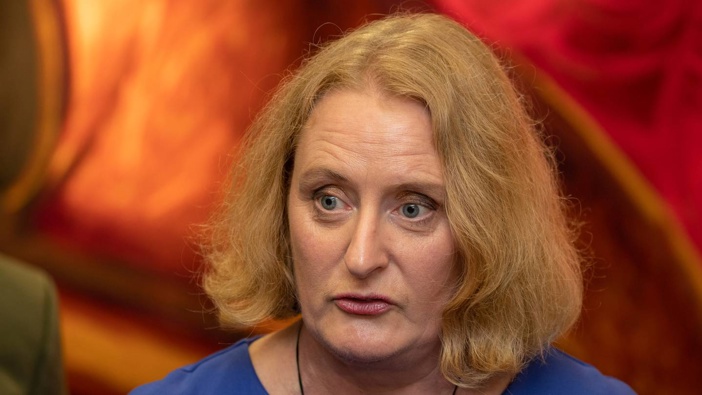Follow
the podcast on

The Waitangi Tribunal has called on the Crown to step down after a report found state care provider Oranga Tamariki to be a foundation of structural racism.
The Tribunal now recommends that a Māori Transition Authority be established and is calling on the Crown to support this establishment for Māori to lead the way.
The Tribunal's Oranga Tamariki Urgent Inquiry Report, released today, said the state care provider had a poor cultural understanding and had created distrust throughout the care and protection system.
"They accepted that the broader forces of colonisation and structural racism, alongside the ongoing effect of historical injustices on whānau, hapū and iwi, contributed to this disparity," the report says.
The findings come after five inquiries were launched into Oranga Tamariki under former chief executive Graine Moss' leadership, when a Hastings incident revealed Oranga Tamariki social workers repeatedly trying to uplift a Māori baby from hospital despite the mother's objection.
The probes included an internal review, inquiries by Whānau Ora, the Chief Ombudsman, the Children's Commissioner and the Waitangi Tribunal.
This led to Moss' resignation earlier this year, which Māori political leaders Kelvin Davis and Debbie Ngarewa-Packer said was "the right thing to do".
The Tribunal said it was time for Māori to "reclaim their space" to make decisions in what was best suited for tamariki Māori, and that the Crown stepped back from making "further intrusion".
The Children's Commissioner and Assistant Māori Commissioner said the inquiry outlined the failure of Oranga Tamariki and its current approach to protect Māori children.
"The Tribunal's comprehensive report is the latest evidence that the state care and protection system is not working for Māori and must be completely transformed," Children's Commissioner Judge Andrew Becroft said.
Becroft said a "for Māori, by Māori" approach is a "once-in-a-generation opportunity to get it right for mokopuna and whānau Māori".
"We urge the Government to take it."
"The 'child rescue' model inherited by Oranga Tamariki has for decades failed to work for mokopuna Māori, and it never will.
"Too often it has severed the links between mokopuna and their whānau, hapū and iwi, damaging their lifelong connections, identity and wellbeing."
The Tribunal said there was "a pressing national issue for many Māori and there is a risk of significant and irreversible prejudice to whānau, hapū and iwi".
The report found that prior to the highly publicised Hastings uplift in mid-2019, Oranga Tamariki routinely failed to follow its own policies, with structural racism at the forefront.
Māori are more likely to end up in Oranga Tamariki care, accounting for 61.2 per cent of children in 2017, the report found.
In 2018, five babies a week were being separated from their mothers, majority of which were Māori. In 2019, the number of newborn babies taken into custody dropped to 248 but were also predominantly Māori.
Tamariki Māori were suffering or likely to suffer significant and irreversible prejudice as a result of the current or pending actions of Oranga Tamariki, for which there was no alternative remedy bar an immediate inquiry.
The report said the Crown acknowledged that there was a significant disparity between the number of tamariki Māori and non-Māori being taken into care.
The Crown accepted that the impacts of colonisation, structural racism and the ongoing effect of historical injustices on whānau, hapū and iwi, contributed to this disparity.
The Tribunal said the Crown must support the transformation to come, but it is not one that it can or should lead.
LISTEN ABOVE
Take your Radio, Podcasts and Music with you









